R&D AREAS
| DYES | |
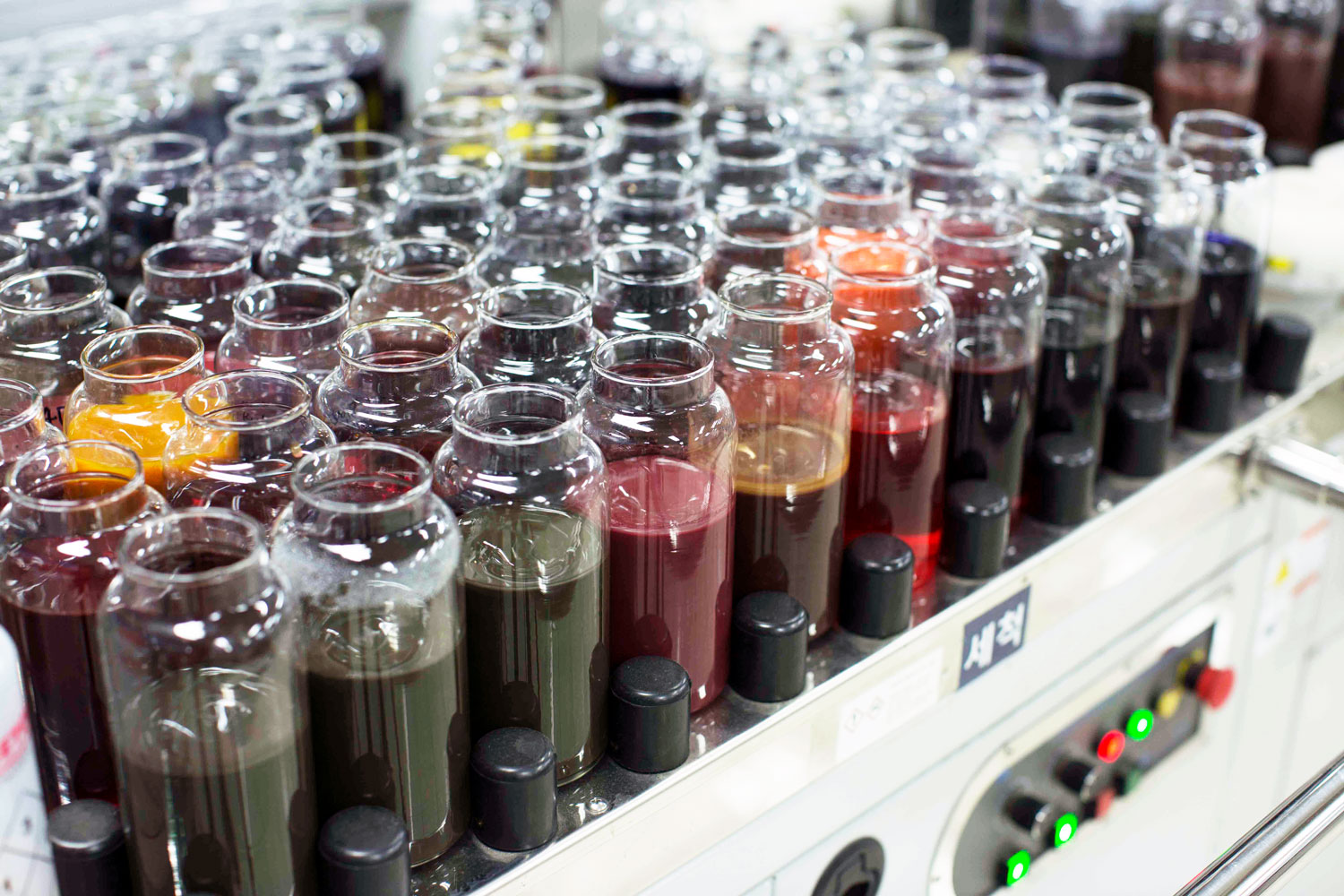 |
Building on its long history with dyes, KISCO R&D conducts research into optimized synthetic processes and quality improvements for the development of high-functional and eco-friendly textile dyes.Major fields of research:
|
| ORGANIC SYNTHESIS | |
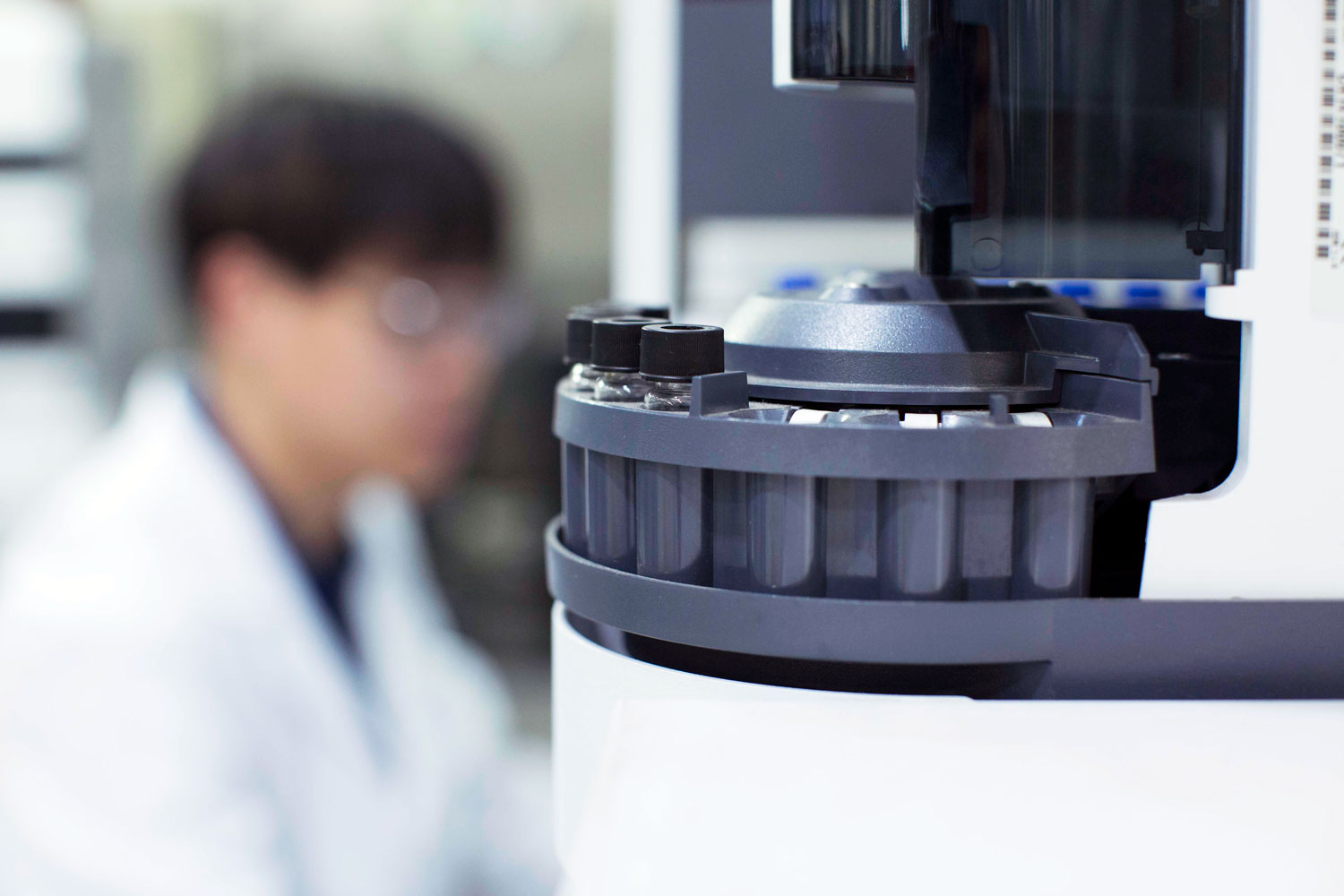 |
KISCO has years of accumulated experience with high-purity organic synthesis and refining technologies. KISCO is developing functional materials for display and semiconductor applications. KISCO is also refining differentiated metal and impurity control technologies.Major fields of research:
|
| INKS | |
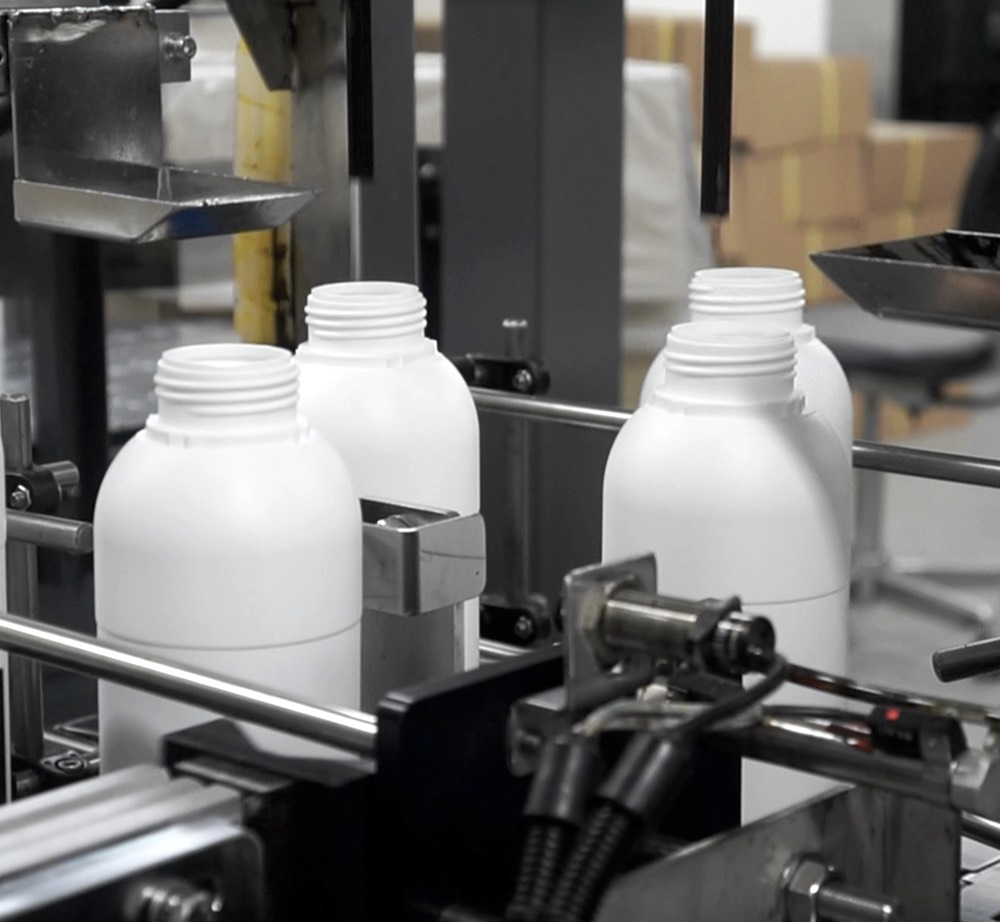 |
KISCO is developing high quality inks for large format, digital textile printing and UV inks for building materials and signageMajor fields of research:
|
| FINE CHEMICALS | |
 |
We develop and produce organic and inorganic compounds ranging from basic chemical materials to functional electronic materials.Major fields of research:
|
| ADVANCED TECHNICAL BUSINESS (ATB) | |
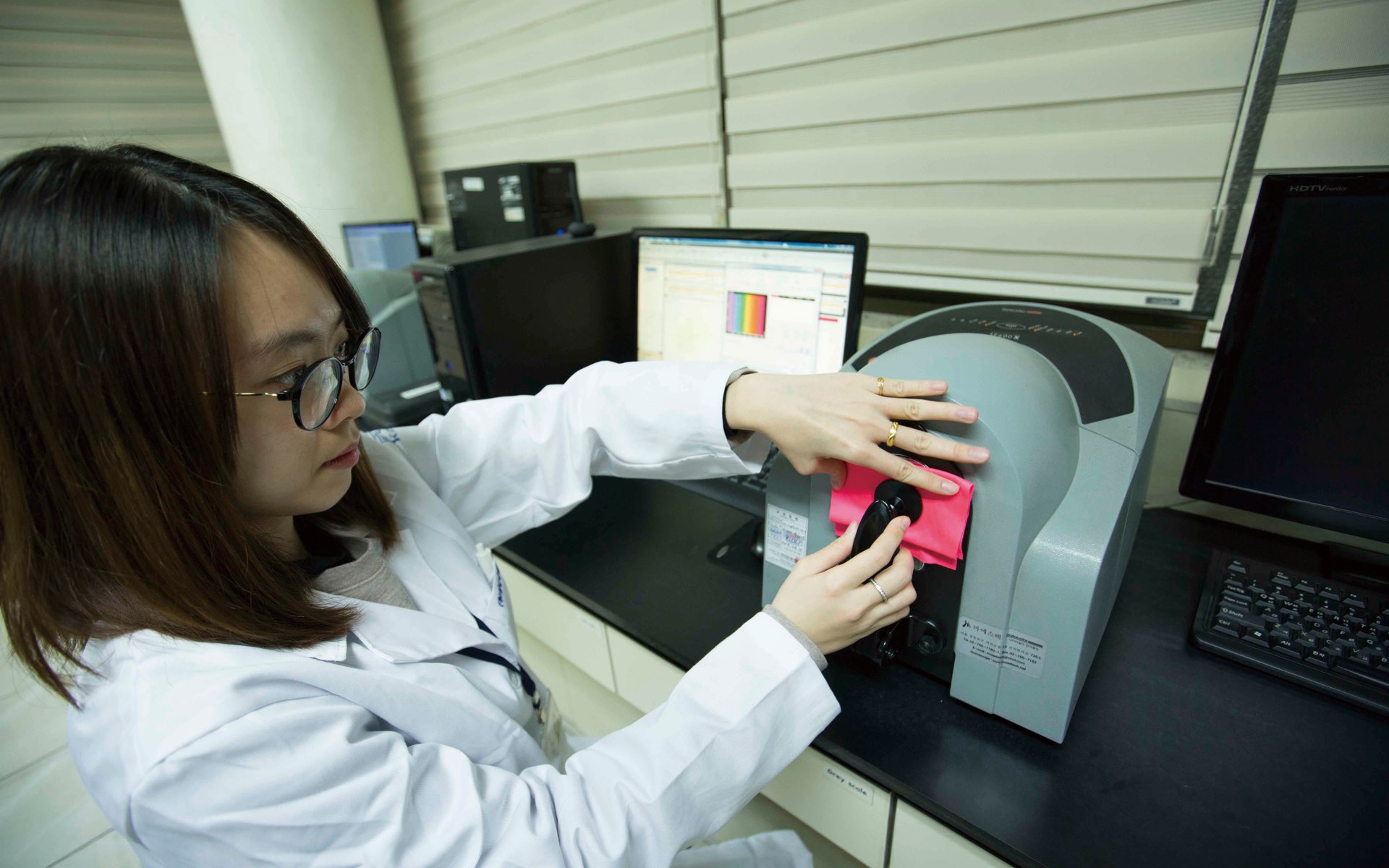 |
KISCO’s Technical support team provides instant information and technical data to partners and dyeing houses through extensive technical exchanges. The team works throughout the textile industry, from yarn factories to clothing brands.KISCO’s technical support team is responsible for technical exchange and training alongside partners in more than 60 major textile countries around the world including Pakistan, Bangladesh and Vietnam, as well through KISCO’s subsidiaries in China and India. Through both on and offline meetings with major end-users, the team are supporting the diverse needs of the textile/clothing market. In particular, in recent years KISCO has demonstrated compliance with the sustainability management policies of apparel brands and industry NGOs. By adhering to these policies KISCO has also been able to increase production efficiency through improvement of reproducibility and process optimization. A key outcome is that KISCO is able to support customers to reduce overall production costs such as water consumption and energy consumption per unit time. The KISCO technical support team provides extensive technical information to textile yarn companies, clothing brands, partners and dyeing factories. It provides rapid access to information and technical data through online social media channels and offline promotional materials such as pattern cards, flyers, Technical Data Sheets and presentations. KISCO is equipped with a variety of automated and semi-automated experimental equipment that can reproduce on-site processes for printing, including permeation and continuous dyeing, for each fabric material and production process in the diversifying textile market. In addition, KISCO has facilities to quickly exchange and implement color information online and offline with dyeing factories and clothing brands. Major dyeing equipment:
|
| ANALYTICAL EQUIPMENT | |
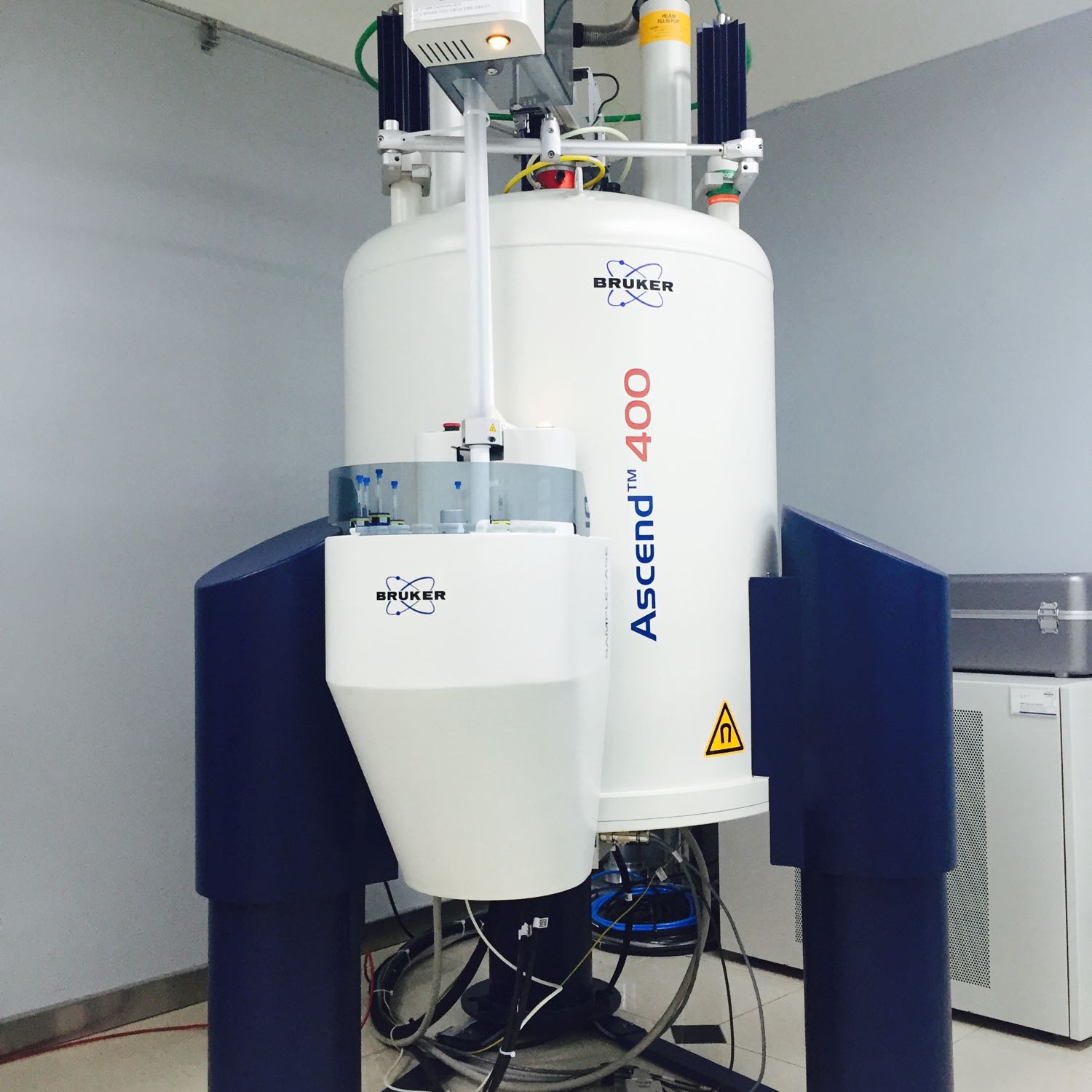 |
Precision equipment for accurate analysesThe facility is equipped with various analytical equipment including NMR, ICP-MS, LC/MS, GC/MS etc. The KISCO Chemical Testing and Analysis Center conducts a wide range of chemical tests related to the performance and safety of dyes, inks, electronic materials, foods and pharmaceuticals. In addition to general instrumental analysis, we conduct physicochemical measurements, test ecological properties and carry out chemical structure identification of substances. General analytical instruments:
Specialist analysis:
|
